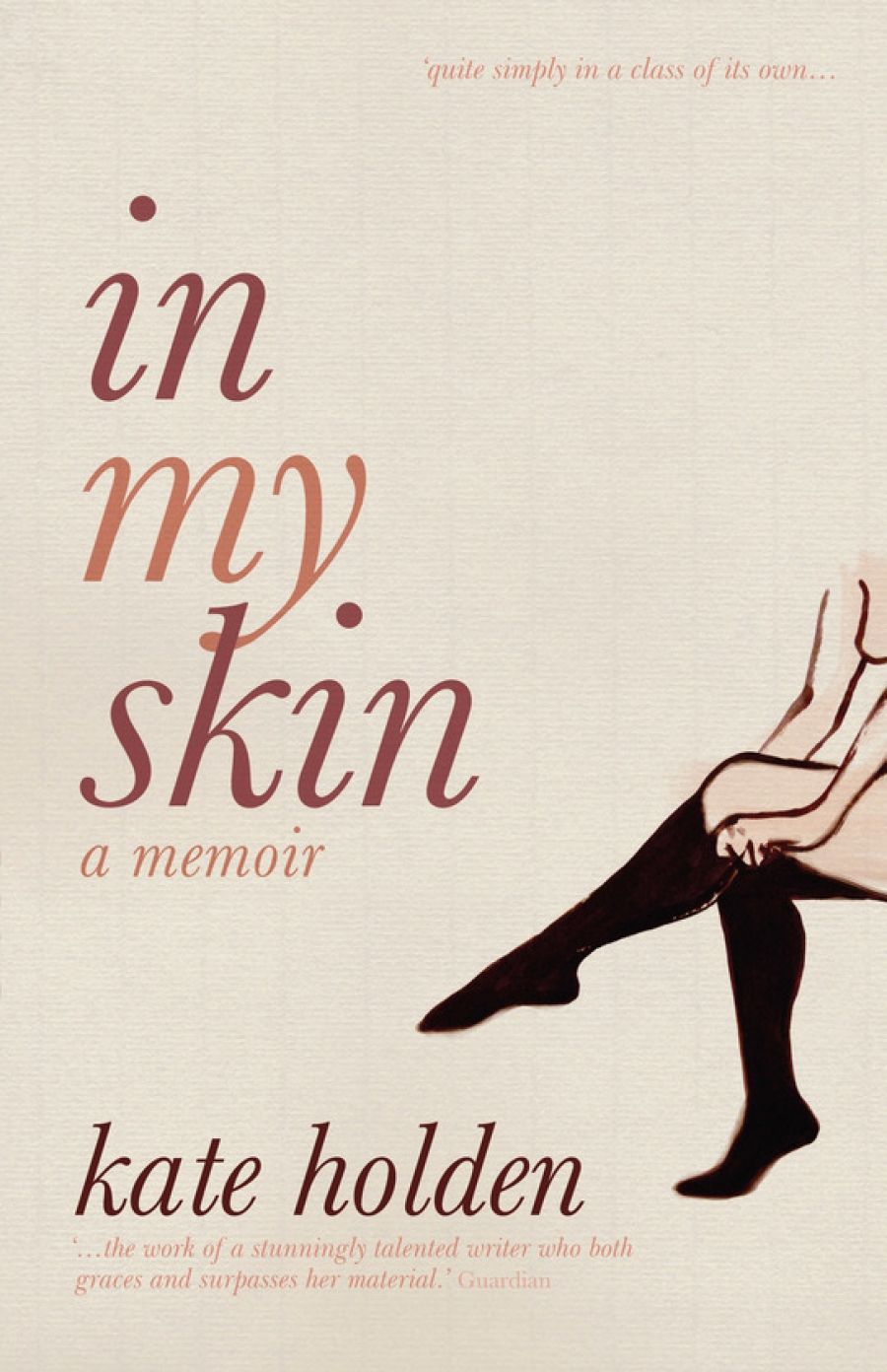
- Free Article: No
- Contents Category: Memoir
- Review Article: Yes
- Online Only: No
- Custom Highlight Text:
Melbourne woman Kate Holden’s memoir of being a heroin user and of working as a prostitute to fund her habit opens with a quote from Virgil: ‘To descend into hell is easy. But to return – what work, what a labour it is!’ The quote is at odds with the life story Holden constructs in this brave, explicit, and extremely well-written book ...
- Book 1 Title: In My Skin: A memoir
- Book 1 Biblio: Text Publishing, $32 pb, 287 pp, 1920885900
It is the unexpectedness of Holden’s line of work – as well as the quality of the writing – that gives the memoir its voyeuristic appeal. Substitute working class for middle class, an unemployed single parent for a pair of professionals, and replace the leafy streets of Holden’s childhood with rotting factories and a whole lot of brick veneer, and the story would, sadly, be less exceptional and interesting. Poor women continue to have far fewer choices.
Indeed, despite Holden’s assertions that prostitution is mostly enjoyable, well-paid work, she did not decide to do it until heroin had made her poor and desperate. Once she stopped using either heroin, methadone, or speed, she stopped prostituting herself. Her cure was completed in Europe, a suitably cultured location for a thirty-year-old middle-class girl to get clean.
But all that comes later. In My Skin opens with a twenty-three-year-old Holden living in St Kilda, working part-time in a bookshop and playing bass part-time in a band, when she started using heroin with friends. The rock’n’roll dealer, the foil, the spoon, the needle, the thin boyish lover who fixes her up, at first the whole scene was intoxicating to a young woman with a taste for passionate extreme (Holden’s Honours thesis was on Anaïs Nin).
Holden gives a glittering portrait of the St Kilda of the early 1990s and of her life there as a bohemian young woman. She moves into a flat with her boyfriend, and the adventures diminish to just one: how to score. ‘I started a new journal. On the front cover I stuck a picture of Anaïs, elegant and composed, at the brink of her career ... In the back, I kept a list of the dates we used heroin, until there was no point because it was every day.’
The opening sections of the memoir are compelling, and I did not want to stop reading. With great skill, Holden recaptures the games she played with herself in her increasingly futile efforts to deny the seriousness of her addiction. Once Holden is sacked from the bookshop and kicked out of home, prostitution becomes a way to survive.
Most of the memoir is about this work but when prostitution is broken down into a series of sexual tasks – 69ers, Greek, vanilla and all the rest – it is pretty boring. I skipped over the detail of the brain surgery conducted by Ian McEwan’s main character in Saturday (2005), and I really wanted to do the same here.
Other readers may be more fascinated by brothel life, but as the book progressed I wanted to know more about how the author reinvented herself as a writer, how she moved from turning tricks to turning pages. Perhaps that will be material for a sequel.


Comments powered by CComment